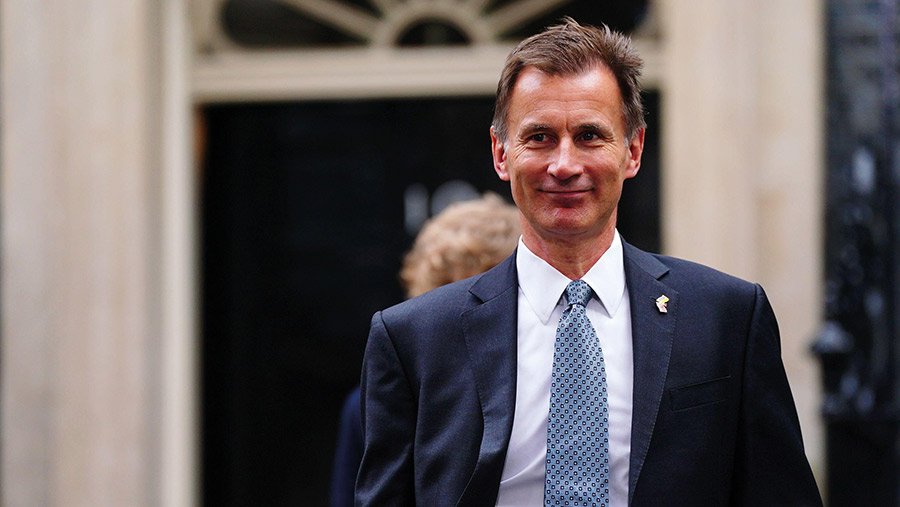Farmers fear chancellor will target Defra with spending cuts
 © PA Images/Alamy Stock Photo
© PA Images/Alamy Stock Photo Industry leaders and environmental groups are sending a joint message to government that support for farming must not be cut as a consequence of next week’s Autumn Statement.
Chancellor Jeremy Hunt is due to address the House of Commons on Thursday (17 November) to set out his plans for generating revenue and making savings through government cuts.
Leaked Treasury information circulating this week suggest there is a hole in government finances of about £60bn, which will have to be plugged, primarily through spending cuts rather than increases in taxation.
See also: Defra underspent in 2021-22 because of scheme delays
And, while some departments are likely to be protected, such as defence and health, other “lesser” departments will be vulnerable.
This has raised fears that Defra may be targeted, including funding for new post-Brexit support schemes.
“It’s absolutely vital, as we see the roll out of the Environmental Land Management scheme that it is properly funded,” said NFU vice-president David Exwood.
“They have to deliver a balanced policy between food, farming and the environment, and now more than ever we need to see the Sustainable Farming Incentive funded properly, if they are to deliver on their objectives.”
Manifesto commitment
Tenant Farmers Association chief executive George Dunn added that it was “vital” the chancellor and prime minister delivered on their 2019 manifesto commitment – to maintain the current public funding for agriculture at least until the end of the current parliament.
“It would be madness to cut this budget for such a sensitive and important sector. Delivering for food security, biodiversity and climate change inevitably needs public funding,” he said.
Defra insists that it is committed to backing British farmers and rural communities as part of the government’s strategy for protecting the environment.
“The government’s manifesto sets out how we intend to maintain levels of spending on agriculture during the first four years of the agricultural transition period, until 2024-25, amounting to an average of £2.4bn a year over that period,” said a spokesman.
But Vicki Hird, head of agriculture at food and farming alliance Sustain, expressed some scepticism.
“Other manifesto commitments haven’t all been adhered to, so we need a really strong commitment that they will maintain the budget, and have longer term-budgets because farmers need to plan,” she said.
General election
But even if the budget is maintained for another two years, Tom Lancaster, head of farming at the RSPB, warned of funding cuts after the next general election.
“This should provide a common cause between environmentalists and farmers in terms of making the case for that spending in the long-term,” he said.
“Under the CAP, the argument between environmentalists and farmers was ‘who gets the biggest slice of the cake’, and we were often antagonists.
“That dynamic has now fundamentally changed. With the government having to look at massive spending cuts, the dynamic is whether there will be any money at all. We need to be allies.
“Our message to the exchequer is that we need more money, not less, to meet all the government’s targets.”
